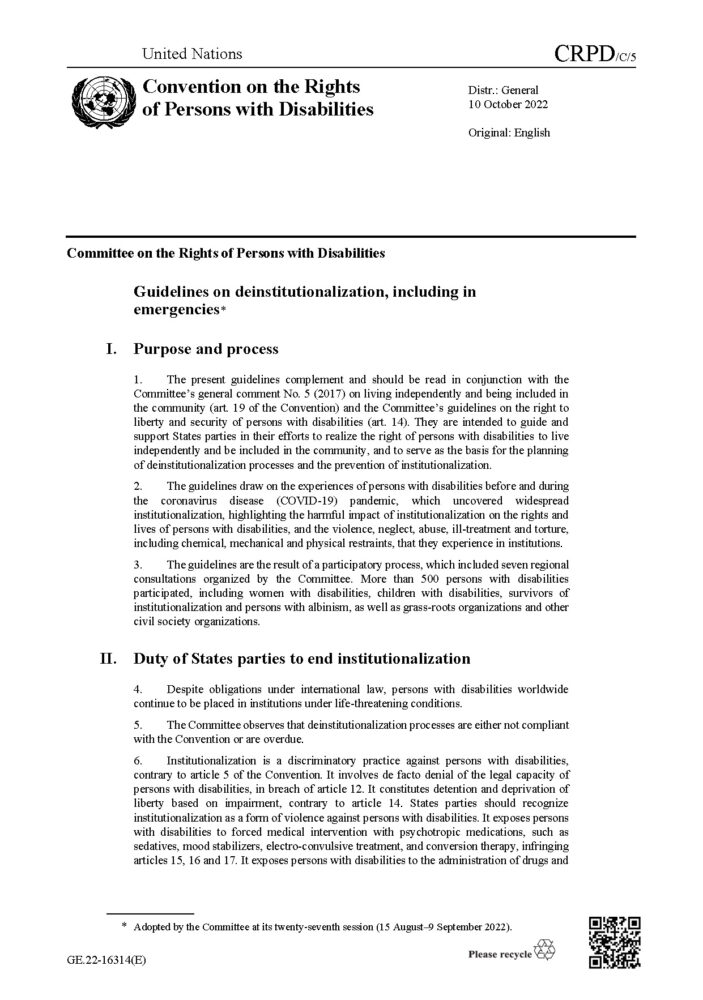The present guidelines complement and should be read in conjunction with the Committee’s general comment No. 5 (2017) on living independently and being included in the community (art. 19 of the Convention) and the Committee’s guidelines on the right to liberty and security of persons with disabilities (art. 14). They are intended to guide and support States parties in their efforts to realize the right of persons with disabilities to live independently and be included in the community, and to serve as the basis for the planning of deinstitutionalization processes and the prevention of institutionalization.
The guidelines draw on the experiences of persons with disabilities before and during the coronavirus disease (COVID-19) pandemic, which uncovered widespread institutionalization, highlighting the harmful impact of institutionalization on the rights and lives of persons with disabilities, and the violence, neglect, abuse, ill-treatment and torture, including chemical, mechanical and physical restraints, that they experience in institutions.
The guidelines are the result of a participatory process, which included seven regional consultations organized by the Committee. More than 500 persons with disabilities participated, including women with disabilities, children with disabilities, survivors of institutionalization and persons with albinism, as well as grass-roots organizations and other civil society organizations.

